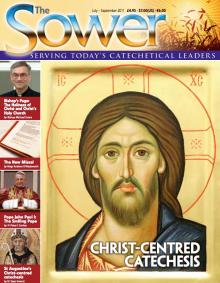As part of the tribute to Sofia Cavalletti we reproduce here a short article from here writings.
In the Apostolic Exhortation Catechesi Tradendae (On Catechesis in Our Time), we read that the catechist “will not seek to keep directed towards himself and his personal opinions and attitudes the attention and the consent of the mind and heart of the person he is catechizing. Above all, he will not try to inculcate his personal opinions and options as if they expressed Christ's teaching and the lessons of his life. Every catechist should be able to apply to himself the mysterious words of Jesus: ‘My teaching is not mine, but his who sent me (John 7:16).’ Saint Paul did this when he was dealing with a question of prime importance: ‘I received from the Lord what I also delivered to you (1 Corinthians 11:23).’ …what detachment from self must a catechist have in order that he can say, ‘My teaching is not mine!’” (N. 6)
The need for rigorous objectivity
The text cited establishes a principle of the utmost importance in catechesis: the need for the catechist to be rigorously objective in the transmission of the message.
In every educational process the educator must put the one to be educated in relationship with reality so that he or she becomes capable of establishing his or her own personal relationship with it. The task of the catechist is to initiate into religious reality, that is to say (1) to point to the reality that we are surrounded by the presence of a Person, of a Love, because from this knowledge is born (2) a personal relationship with God.
The rest of this online article is available for current Guild members.
This article is from The Sower and may be copied for catechetical purposes only. It may not be reprinted in another published work without the permission of Maryvale Institute. Contact [email protected]

















